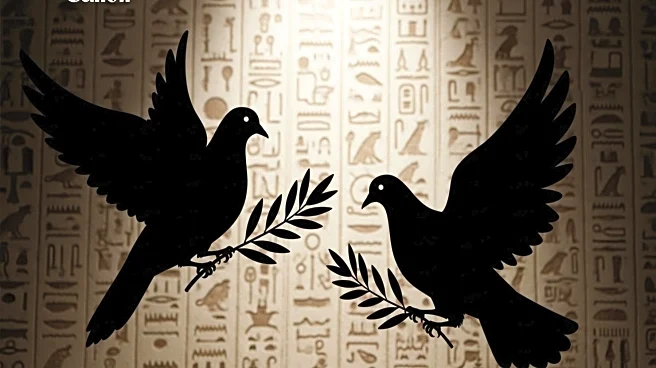What is the story about?
What's Happening?
Israel and Hamas have commenced indirect negotiations in Egypt to discuss a ceasefire plan proposed by U.S. President Donald Trump. The talks, taking place in Sharm el-Sheikh, involve delegations from both parties and are mediated by Egypt and Qatar. The discussions aim to finalize details of a 20-point plan introduced by President Trump, which seeks to end the ongoing conflict in Gaza. The plan includes the release of hostages held by Hamas in exchange for Palestinian prisoners in Israel. While Hamas has agreed to some aspects of the plan, such as the release of hostages and handing over control of Gaza to an international body, it has not yet agreed to disarmament and other political conditions.
Why It's Important?
The negotiations are crucial as they represent a potential turning point in the long-standing conflict between Israel and Hamas. The successful implementation of Trump's plan could lead to a significant reduction in violence and humanitarian suffering in Gaza. The involvement of international mediators and the backing of the U.S. add weight to the negotiations, potentially influencing regional stability. However, the complexity of the issues at hand, such as disarmament and governance, poses challenges to reaching a comprehensive agreement. The outcome of these talks could have far-reaching implications for Middle Eastern geopolitics and U.S. foreign policy.
What's Next?
The talks are expected to continue over the coming days, with negotiators working to address unresolved issues. The success of the negotiations will depend on the willingness of both parties to compromise on key points, such as Hamas' disarmament and the future political structure of Gaza. International stakeholders, including the U.S., Egypt, and Qatar, will likely continue to play a significant role in facilitating dialogue and ensuring compliance with any agreements reached.
















